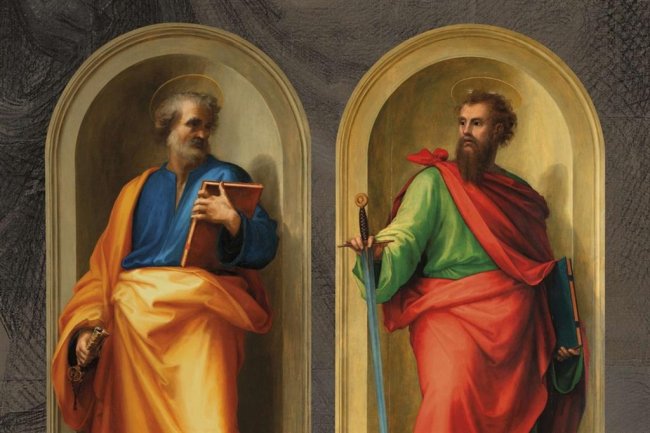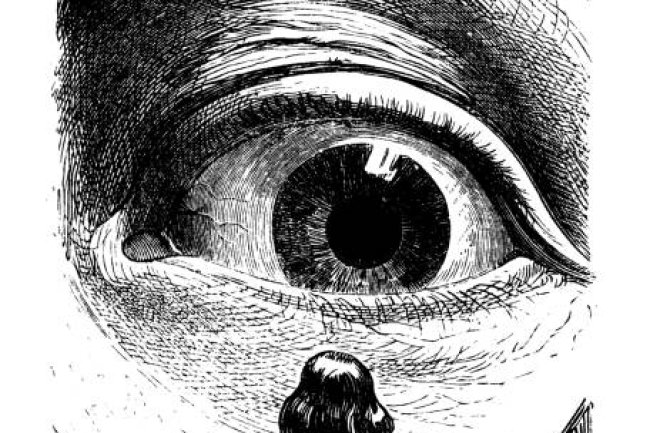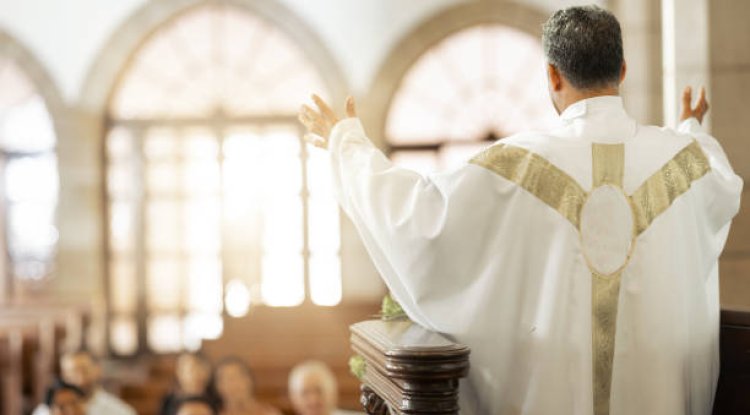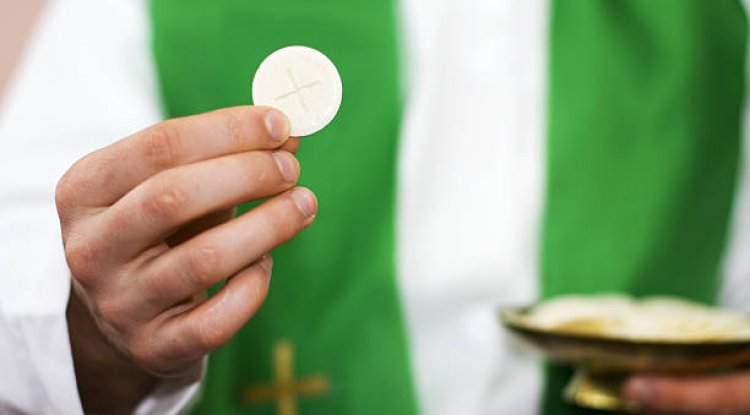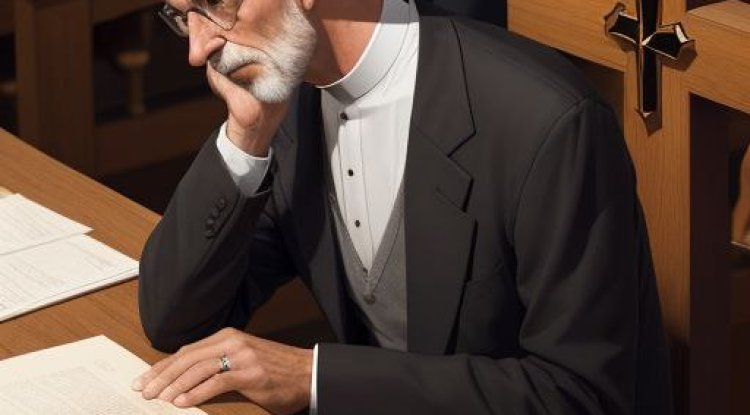THE EUCHARIST: OUR SOURCE OF LIFE
SOLEMNITY OF THE MOST HOLY BODY AND BLOOD OF CHRIST (CORPUS CHRISTI). YEAR A. Readings: Deut. 8:2-3, 14-16; Psalm 147:12-15, 19-20; 1 Cor. 10:16-17 and John 6:51-58.

The Solemnity of Corpus Christi is traditionally celebrated Thursday or Sunday after Trinity Sunday with procession of the Body of Christ. For pastoral reasons (the month of June is the season of rain), the church in Nigeria has her procession at the end of the liturgical year, with the feast of Christ the King. It is a day of thanksgiving for the institution of Holy Communion on Maundy (Holy) Thursday. It calls us to reflect on the hard teachings of Christ regarding the Eucharist as the source of our life.
In the first reading, Moses reminded the Israelites to keep God’s commandment and to remember their history of how good God was to them. God nourished and sustained his chosen people Israel through their journey in the desert by giving them food (manna) and drink from heaven. He reminded them on how God cared for all their needs especially, by providing them manna from heaven. In giving this food and drink to his people, God demonstrated his love for them, his willingness to see them through and of course, his ability to sustain them physically and spiritually. In like manner, in our own time God has given us His son Jesus Christ in the Sacrament of the Eucharist. He has given us the body and blood of Christ for the life of the world.
Paul in the second reading reminds us of the unity of the Church through sharing in the one Body and Blood of Christ. This is typical of what happens during the Eucharistic celebration, people, communities, races, and nations are united as they share in the Body and Blood of Christ. At every Mass, our attention is drawn to the Eucharist and the Real Presence of Christ in it. Also, the celebration of today portrays the Church as the Body of Christ because of the intimate communion, which Jesus shares with his disciples. He expresses this in the gospels by using the metaphor of a body in which He is the head.
The gospel presents a catechesis of Christ on the Eucharist. The whole of John chapter 6 is on the discourse of the Eucharist. Prior to this pericope was the multiplication of bread and the feeding of the multitude who had followed him for more bread and he said to them, “You seek me, not because you saw signs, but because you ate the loaves, and were filled. Don’t work for food which perishes, but for the food which remains to eternal life, which the son of man will give to you” (Jn 6:24-25). Christ ceased the opportunity to teach them of the bread that comes down from heaven and gives life forever. They demanded for this bread and Christ gave them the hard teaching they found difficult to comprehend: “Unless you eat the flesh of the Son of man and drink his blood, you have no life in you; he who eats my flesh and drinks my blood has eternal life, he who eats me will live forever…” (vv. 51-55). This teaching was strange to them and hearing it, the Jews then disputed among themselves, saying, “How can this man give us his flesh to eat?” (Jn 6:52) and they gradually backed out.
With this catechesis, Christ and his believers were grievously accused of cannibalism. He said His body is the true food and his blood true drink. Even as they deserted him, Christ never compromised his teaching, he insistently and consistently taught them of His divinity, “I AM.” He is the God that gave manna to the Israelites in the desert as seen in the first reading, of which they ate and died. Here, he tells us, “He who eats my flesh and drink my blood has eternal life” (v. 56). This is different from the manna in the desert. Maybe, one of the most “scandalizing” Catholic doctrine is the “Real Presence” of Jesus Christ in the Blessed Sacrament otherwise known as transubstantiation. Many people and perhaps even Catholics with epileptic kind of faith today have the same reaction as those disciples who heard Christ preach it for the first time in Capernaum and were scandalized. However, the truth is that, His body is true food and his blood true drink. It is different from the “ordinary food” we eat daily and the manna that the Israelites ate in the desert and yet died because, “Whoever eats the body and drinks the blood of the Son of Man will never die” (v. 54).
Also, he did not compromise his teaching just to win their hearts. He was not afraid of losing his congregation because of the truth that lies in his teaching. We are in a world today where many Christians do compromise their faith on issues of morals and want the church to accommodate some immoral acts as a result of change of time or epoch, just to suit any trending action with the gospel. In some practical cases, appealing to the church to support the legality of homosexuals, abortion, contraception, divorce and some other evil acts, so that they can still bear the title of Christian in justifying their actions. Some that are into dubious business such as ‘yahoo-yahoo’ will go to the extent of seeking blessings from their priests or pastors so they can succeed in duping people. Some others want to make adultery and fornication appear as norm and less sinful because they still want to identify with the church. While the crowd were leaving, Christ never compromised his teaching, neither will the Church compromise her doctrines and traditions.
Today’s celebration helps us to have a rethink of the Eucharist and its importance in the life of the Church. The Body and Blood of Christ (the Eucharist), is the most excellent gift ever given to us by Christ and it is the sacramental presence of Christ in his Church. Without the Eucharist, there is no Catholic Church and without the Church or her priest, there is no Eucharist. The Eucharist is the source and summit of our life and faith (Lumen Gentium 11), the center of our celebration, the pillar of the Church (CCC 1324-5). When Christ said, “This is my body… This is my blood” It is not a replacement or taking the place of the Bread and wine (ex nihilo – out of nothing) nor is it substantial dualism (what the Lutherans call consubstantiation). It is for us as Roman Catholics transubstantiation. That is, by the very words of consecration of a validly ordained priest of the Holy Mother Church, there is an ontological change of the substance of Bread and Wine, which is transformed into the Body and Blood of Jesus Christ (CCC 1411).
While we have our daily food to sustain our physical life, the Eucharist sustains our spiritual life. It gives us the grace to feel forgiven and to be ready to forgive each other. It influences our communal life: the act of coming together around the table is necessary, it is the first sign of communion, after which we receive the sacramental communion. Importantly, it is not appropriate for us to bring our offerings, to be used as sacrifice in the holy mass but sit back when it is time to receive Christ in the Eucharist. Whatever will deprive us from partaking in the Eucharist, let us make efforts to resolve it through the sacrament of reconciliation.
Happy Feast Day of the Body and Blood of Christ!
Fr. Ken Dogbo, OSJ
What's Your Reaction?








